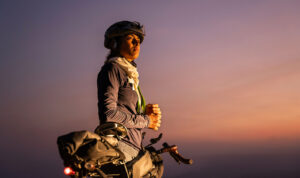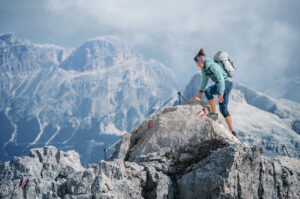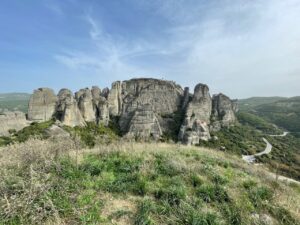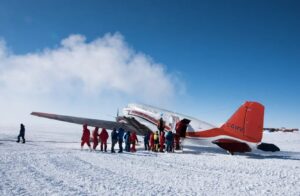When we’re not outdoors, we get our adventure fix by exploring social media and the web. Here are some of the best adventure links we’ve discovered this week.
At 40, She Discovered She Was One of America’s Best Free Divers: At age 40, Sara Lynn Burnett took up freediving on a whim. In her first competition, she reached an impressive 65 m. After her dive, one of the judges suggested she apply for the national team.
A few months later, Burnett was at the Freediving World Championships. The only competitor without a coach, she placed 11th. What started as casual curiosity after her brother lent her his spearfishing fins has developed into an unexpected passion.
Tiny Dog Alerts Mountain Rescue to Accident Site: A hiking trip on Switzerland’s Fee Glacier turned into a dramatic rescue when a man fell roughly eight meters into a crevasse after a snow bridge gave way. The hero of the day? The man’s tiny dog.
While its owner started frantically calling for rescue on his walkie-talkie, the little dog sat next to the hole until help arrived, acting as a marker so the team knew where to look. Air Zermatt hailed the dog a “four‑legged hero.”

The four-legged hero. Photo: Air Zermatt
Do I like backpacking?
The Himalayan Trip That Made Me Question If I Even Liked Backpacking: Emily Pennington gives a first-person account of four days hiking Bhutan’s Druk Path Trek. Solo traveling was not new to Pennington, but for some reason, this guided hike felt lonely and isolated. As she saw Phajoding Monastery come into view, her eyes filled with tears. The trip had been on her bucket list for years: Why was she not enjoying herself? She realized that it might be because she would rather be sharing the experience with someone else.
National Park Tragedies in the UK: Over five days, two hikers died in separate falls in England’s national parks. The first hiker fell on Kinder Downfall, the Peak District’s tallest waterfall. Recovery efforts lasted 10 hours and included multiple mountain rescue teams and a coast guard helicopter. The second accident occurred days later on Sharp Edge, a narrow ridge on Blencathra in the Lake District that is considered one of the most dangerous hikes in the UK.
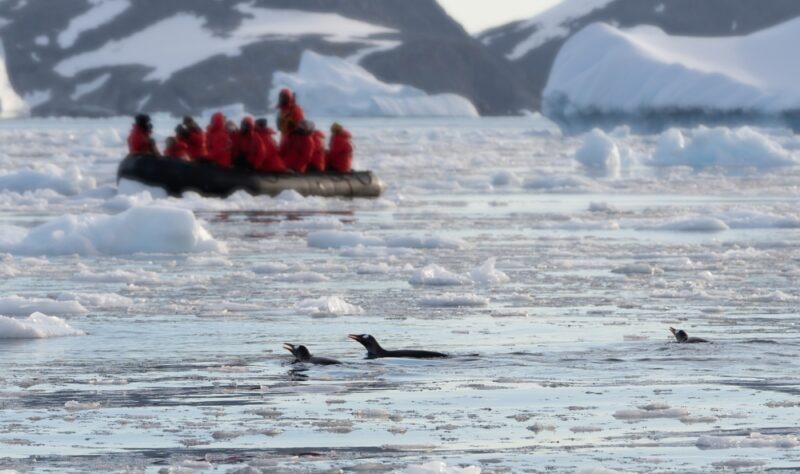
Penguins in Antarctica. Photo: Shutterstock
Protecting Antarctica
Why You Should Consider Taking Antarctica Off Your Bucket List: Antarctica holds great allure for a huge number of people, but tourism might wreck the pristine wilderness you’re hoping to visit. From under 8,000 visitors a year three decades ago, numbers have soared to nearly 125,000 in the 2023–24 season.
This influx of tourists puts a huge strain on the fragile ecosystems, with risks including compacting soil, bringing in invasive species, and disturbing breeding colonies. While the Antarctic Treaty and the International Association of Antarctica Tour Operators set guidelines, there are very few actual rules. Experts warn that without stricter regulations, Antarctica could be harmed beyond repair.
The Most Common Trail Running Accidents: Trail running carries more risk than most runners realize. Up to 80% of runners report injuries, but trail-running injuries tend to be particularly serious. A new study examines trail running risks and explores how both individuals and race planners can mitigate them. From cardiac arrest to lightning strikes, Alex Hutchinson summarizes the study and some of the injuries listed.

The motorcyclist’s selfie with a bear. Photo: Omar Farang Zin
Biker approaches a bear with tragic results
Motorcyclist Takes Photo With Bear and Gets Mauled to Death: Italian motorcyclist Omar Farang Zin, aged 48, died after a brown bear mauled him in Romania on July 1. He was riding through the Carpathian Mountains when he spotted the bear and approached it. He posed for photos and selfies, some of which were later recovered from his phone. According to other motorcyclists, the bear attacked after he tried to take photos with her cubs.
The Art of Surfing Burn: Nicklas Balboa dissects surf line-up etiquette and the difference between a harmless “drop‑in” and a deliberate “burn.” A drop‑in is seen as careless, unplanned, and sometimes forgivable. But a burn is a calculated move meant to insult or undermine another surfer.

